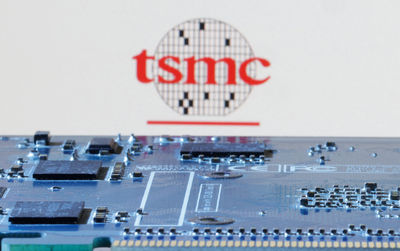My name is Tigran and by definition, I’m probably a half-indie hacker. Why half you may ask? Because I’m a full-time software engineer at Buffer but at the same time I build an online profitable side-business calledCronhub. If we think how one of my favorite internet sites Indie Hackers defines it I think I’m fitting into that definition but not quite.

How IndieHackers.com defines indie hacker
I generate money independently through the product I’ve created but also have a primary source of income which is my employer. I’m a solo founder and have been bootstrappingCronhub for the past 8 months or so. As you see I may have the rights to call myself an indie hacker, right? If your answer is yes then let’s read my story further. Also, I have writtenanother article if you like to read more about how I work remotely.
I wanted to be an indie hacker for multiple reasons but the biggest motivation has always been my passion for building products. In the past, I’ve built other side-projects that were free. I even created a side-project when I was in RIT called Wheelie. It became the official ride-sharing online platform for RIT students. However, I’ve shut it down two years ago due losing my interest for the product as well as worrying too much about the safety issues. So yes, I love side-projects because it’s fun and you get to learn a wide range of skills.
Another reason why I started Cronhub is financial income. I understand that money doesn’t necessarily buy happiness but it can buy freedom and I think it’s a big deal at least for me. Not having enough money is always very stressful and making money is usually more fun.
For the past year or so I started to value my time a lot and decided if I ever get involved in side-projects it won’t be for free. Having a full-time job and a family doesn’tgive you too much free time so I better justify what I spend my time on. This thinking really changed my perspective on things that I was keen to work on. This article is the reflection on that journey.
Motivation behind this articleThe motivation for writing this article is primarily based on wanting to share my knowledge and experience with others who are thinking to become an indie hacker. When I started this journey I always enjoyed reading other people’s stories, how they came up with an idea, how they ran their businesses and what it was like being an indie hacker.
Unfortunately, there isn’t a universal formula that one can share for building a successful business. Even the word “successful” has a different meaning for different people. One can define the success by the revenue and others can care about other metrics. Thus, my goal is not to give any advice but rather openly share everything I’ve learned and experienced throughout this year so you can make your own conclusions. I also want to encourage other indie hackers to write about their stories because having more data points only helps people who want to get started with building their own products and making money independently.
The Internet has become the most innovative medium to meet like-minded people, read stories and get inspired by them. Inspiration and motivation are two great forces that fuel your mind to achieve your goals and dreams. So I hope I can motivate you even a little bit with this article. If I do, then my time writing this is fully justified.
LaunchStarting my own business and having side-income has been on my mind for a long time. Since I changed my perspective about side-projects I knew that if I was going to dedicate my time to building something it wouldn’t be free. Getting paid for my own products was never about quitting my full-time job. I know many indie hackers whose main motivation is to become independent and not to work for anyone. I can see it. However, I enjoy my current job at Buffer and have no plans to leave it anytime soon. Will I ever work for myself full-time? I don’t know yet.
Coming up with an idea that can turn into a business wasn’t as hard as I imagined. I had a couple of requirements which I used to run my ideas over for evaluation. For each idea I asked the following questions:
Is this the idea for the market I’m familiar with? Is this product solving my own problem? Can I charge for this product? Is this something I’m passionate about?At the end only two ideas made it to the last step:
An online course on how to build a SaaS product with Laravel and Vue.js Easy cron monitoring tool for developersI ended up choosing 2) only because I knew it would take me less time to launch the MVP compared to making an online course. I’ve never done any online course before so I knew it would take quite a lot of time to finish it. I told myself I was going to give this idea a try and if it didn’t work out then I was going to step back and focus only on creating educational materials for developers. I knew there would always be a demand for those type of products.
Cron monitoring has always been very tricky and challenging. At Buffer I deal with many cron jobs and need to make sure they run on time and if they fail I want to be aware of. Before Buffer when I was at YCharts I created a custom dashboard for the team to track all internal scheduled jobs. The dashboard would contain the list of the scheduled jobs and some logs.
However, the way we would know whether the jobs ran or not was by looking at the internal dashboard. This meant that we had to check the dashboard every single day to make sure all the checks have passed. This wasn’t ideal. When I talked to other developers I realized that this pattern repeats in many engineering teams. So this was a big signal for me of an existing problem. So I decided to build a product that makes it a breeze to monitor cron jobs. If I could build it I could use it for my side-projects and Buffer.
After working on the first version of the product for almost 2 months (part-time) I launched Cronhub on Product Hunt on March 20, 2018 . The reaction of the PH community was quite positive and this set the beginning of my indie hacker journey.

Cronhub’s listing on ProductHunt
Launching a new product is a great milestone to hit but what comes after is probably what most people struggle with. Growing your product and finding a product-market fit is a big challenge especially for the first time founders.
Growing and attracting usersTrying to grow a business on the side comes with many challenges. Obviously, time is the biggest constraint but figuring out when to work is another one that most founders face.Early on when you don’t have many users or customers it’s really hard to rely on data and make data-driven decisions. So the only option left is either seek for advice from other founders or follow your own intuition.
Most of the product based decisions early on were based on my own intuition. Since I was building Cronhub for myself I knew exactly the features I needed to focus on. Being your own user is a big advantage and I strongly believe the idea of solv




















